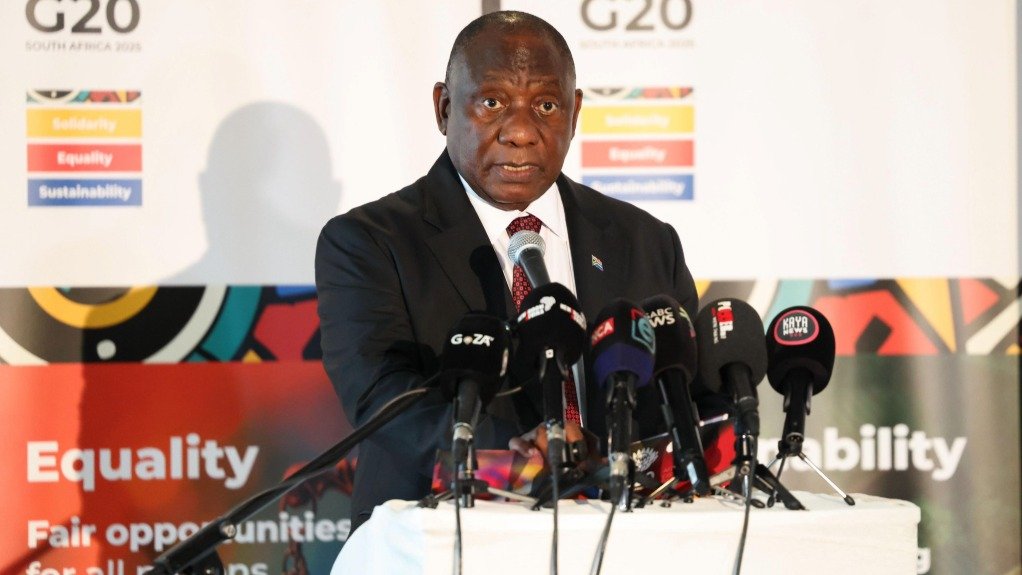Amnesty International South Africa has challenged President Cyril Ramaphosa and his government to demonstrate its commitment to addressing human rights challenges in the country, while also calling for accountability from State institutions that have failed gender-based violence (GBV) survivors, ahead of the 16 Days of Activism against GBV.
Amnesty International South Africa executive director Shenilla Mohamed pointed to genocide being committed in the Gaza Strip, and a civil war in Sudan, while also highlighting South Africa’s GBV and climate change challenges.
“It’s time for the G20 States to step up and do the right thing. This isn’t the moment to be reneging on international human rights obligations and other international commitments, putting people at further risk,” she said.
As the chair for the 2025 G20, South Africa has set the agenda and the overarching priorities for this year's discussions, which include global calls to strengthen disaster resilience and response.
However, she said in South Africa, disaster response in informal settlements remained patchy and haphazard.
She noted Amnesty International’s report, 'Flooded and Forgotten', launched last month, which revealed that government is risking the safety of more than five-million people living in South Africa’s informal settlements by failing to provide them with access to quality housing and essential services.
“These people, many of them living on flood-prone land, are routinely left to cope on their own especially during severe weather conditions, despite the fact that the main responsibility for preparing for and responding to these disasters lies with the government,” she highlighted.
Mohamed said human-induced climate change had exacerbated the risks of flooding, which she said was already a seasonal problem in the country’s informal settlements and underserved areas.
Amnesty International South Africa wants government to mobilise human, financial and technical resources to ensure that disaster risk reduction is fully integrated into urban planning processes.
JUSTICE SYSTEM FAILURES
Meanwhile, Amnesty International South Africa pledged solidarity with non-profit organisation Women for Change and others that were participating in the G20 women’s shutdown taking place on Friday.
Mohamed explained that South Africa’s G20 priorities for women's advancement included addressing gender-based violence and femicide, another major issue facing South Africa.
She noted that Ramaphosa has called GBV South Africa’s second pandemic, but pointed out that the criminal justice system was still failing many victims and survivors.
“So dire is the situation of GBV in South Africa that women have consistently taken to the streets to demand that the State take their safety and security seriously, the latest being Women for Change’s shutdown happening on Friday,” she said.
Mohamed pointed out that there needed to be consequences for those who perpetuated violence.
“…this is where the broken criminal justice system has failed victims of GBV. It is because of this failing system, and more importantly the shoddy investigative work and lack of implementation of legislation, that there is little deterrent for perpetrators,” she stated.
EMAIL THIS ARTICLE SAVE THIS ARTICLE ARTICLE ENQUIRY FEEDBACK
To subscribe email subscriptions@creamermedia.co.za or click here
To advertise email advertising@creamermedia.co.za or click here











